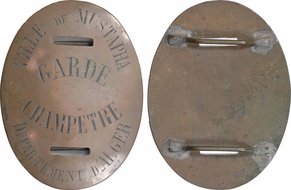Topic Info:
Some ways that you might interpret this would be the earliest ancestor you've identified or the earliest document you've found. Maybe the earliest ancestor in a specific location.As with most people today, most of my family came over in the early 1900s from Europe. The last ancestor to come over was my grandfather, Mathis, in 1926 from Germany.
My earliest ancestor I've been able to find would be 7th generation great grandparents, Laurent Gauquie and Maria C Beun. Both of them would have been born before 1700 and are noted on others family charts, but I don't have any further documentation on them. They are both from or lived in what we now know is Belgium, but it was once a part of France and another time Austria.
Jean Baptiste Gauquie & family
As I'm not sure about anything from those ancestor's, I will continue with my 6th great grandparents, Jean Baptiste Gauquie (1723-1772) and his wife, Isabelle Verscheave (1729-1802), and their 2 sons.
This information I have from one of my cousins who had the time to go around to the churches to get these entries due to them not being available online. Let's face it, France is a lot closer to Belgium than Australia!
According to Jacobus Josephus Gauquie (spelled Gauguy), his son's entry (below), he was from Wytschaete part of Belgium.
 |
| The church birth entry for Jacobus Josephus Gauquie (Gauquy) in 1767 including translation. |
According to the same document (above), his mother Isabella, was from Boesynghe (now Boesinge) part of Belgium.
 |
| The area they both born in with distance from France's border. Credit: Google Earth |
This area was a bit of a fighting area back then as can be seen by the section of the highlighted areas below. It is one of the oldest villages in Heuvelland (the area) (credit Wikipedia). What I thought was interesting was the French used the church as a stable.
 |
| From Wikipedia. |
 |
| Isabelle Claire Verschave death entry at Church. Credit: Herve Constille with translations above. |
This area later become a huge part of the World Wars. They are known for fighting at Messines, Mine Battle of 1917, Ypres Salient, Spanbroekmolen and various other battles.
Anyhow, after Jean Baptiste Gauquie passes away, the French Revolution (1789-1799) happens which is also felt here due to how close they are to France.
Then Napoleon Bonaparte starts to make his way into history from 1803–1815 with the The Napoleonic Wars start.
Their son, Jacobus Josephus Gauquie, is now of age and its hard to say if he fought with Napoleon or not, but I would look at the Conscription, or Draft, in which France held.
The concept originated during the French Revolutionary Wars, particularly for the period following 16 August 1793, when able-bodied men aged 18 to 25 were conscripted. It formed an integral part of the creation of national identity, making it distinct from forms of conscription which had existed before this date.
If we take the above concept and apply it to Jacobus, then he would have been 26 years old. Yes, its one year older than the 25, but I'm sure they would have taken him for conscription without a problem.
He does make it through the French Revolution, but dies before the end of Napoleon's time as he dies in January 1809 in Boesighe, Belgium.
 |
| Top is original entry from the church and bottom is 2 translations. |
The church entry actually tells us more about who Jacobus was. He was a rural policeman or garde Champetre. Due to this, I believe he probably did serve in the fighting or Napoleon came up and gave him this job with him to report anything weird to the government.
| This is what a rural policeman or garde champetre wore. Credit |
 |
| One of the badges he probably wore. Credit |
Or he could have looked like this
| Credit |
Its also interesting that his brother, Jean-Francois Gauquie, is always mentioned in main documents and is always told as a farmer.
Farming was in our family until my uncle Anthony Gauquie passed away a few years ago. Yes, this meant farming has been in my family for at least 250 years in some respect. Not bad at all I say.
No comments:
Post a Comment